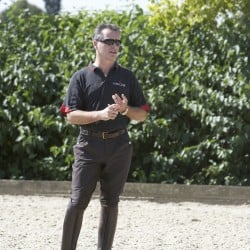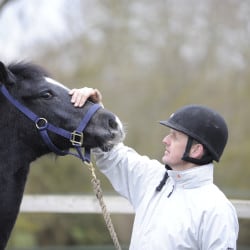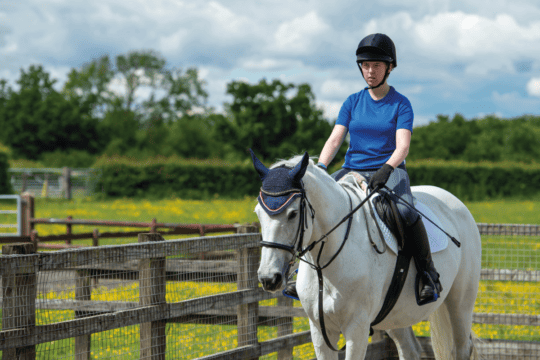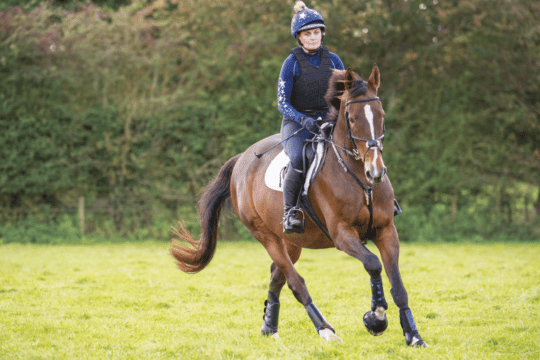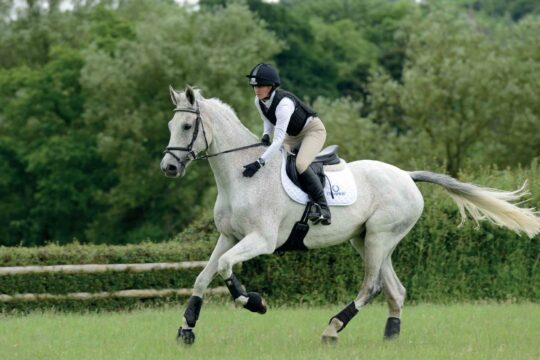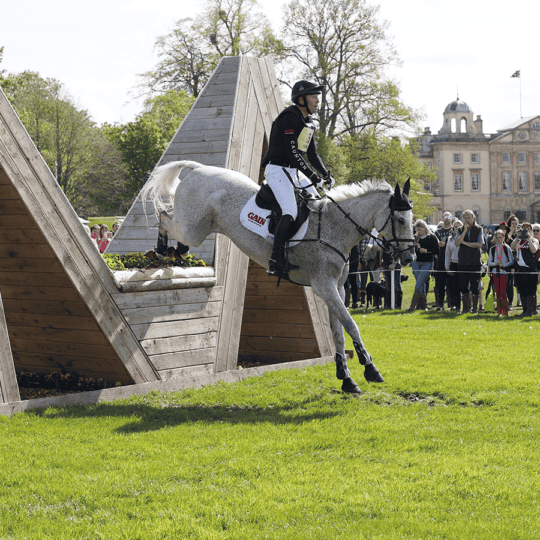Riding is a constant learning curve and at some point we all reach out for the support of a trainer. But how do you go about choosing the right one for you? Horse&Rider investigates
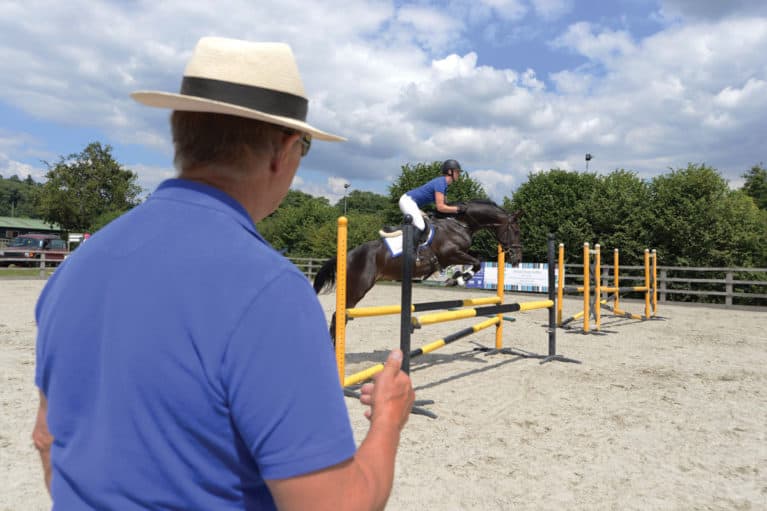
Everybody wants something different from their time in the saddle, whether it’s chasing high-performance goals, improving confidence or bringing on an inexperienced horse.
At some stage along the way, most of us reach out to an instructor, but how do you choose the right one for you? Here’s what you need to think about…
Things to consider
So you’ve decided to invest in some training – always a great decision. Should you choose a high-performance rider with Olympic credentials, a Riding Club coach or an experienced trainer? And what factors influence your selection? Here are a few important considerations when looking to book
some lessons…
- location and access to facilities A local coach will save on travel time, but one who is further away with access to a set of competition showjumps, an international-sized dressage arena or a cross-country course can be a real benefit.
- cost The cost of a session will vary depending on the individual coach and structure of the lesson – for example, whether you’re joining a group or having a private session. If your lesson is at a specialist venue – for example, on a cross-country course – you may be responsible for a facility hire fee on top of the cost of your lesson.
- frequency How you space out your sessions depends on your budget and availability – beyond that, think about what will be of most benefit to you and your horse. If he’s green and you’re working on the basics, maybe twice weekly training with a local instructor will help you get used to riding in company and working in a new environment, or perhaps joining a clinic with an inspiring top-name instructor will carry you through winter evenings schooling on your own? Some riders prefer to space their sessions far enough apart that they’re able to practise the homework in-between. Others sign up for a few lessons in a row as a way to fast-track results.
- insurance and qualifications Qualified coaches undergo rigorous training, as well as holding DBS (formerly CRB) checks, having first-aid certificates and holding public liability insurance. They also commit to CPD in the form of seminars and clinics throughout the year.
Speak to friends
Ask for recommendations – if they’ve had a breakthrough session with a coach they’ll be only too happy to share it with you.
Coming to a venue near you
Trainers often host clinics at popular, accessible equestrian centres. This gives you access to great facilities and saves trainers travelling around the countryside for individual lessons. If a trainer regularly hosts clinics at a centre near you, get in touch and ask if you can go along to watch to see if the training style might suit you and your horse.
What are you looking for?
Before you consider what you’re looking for in a coach, think carefully about what you want from the experience. Understanding these aims will help you find the right instructor for you and your horse’s individual needs…
professional accredited coaches The British Horse Society (BHS) has a proven track record of producing coaches through its rigorous examination system and qualifications that are recognised the world over. BHS coaches also train in all aspects of horse care and handling, as well as managing yards and equestrian businesses. There’s a directory of accredited professional coaches on bhs.org.uk
discipline specific If you’re hoping to compete in a specific discipline, British Dressage (BD), British Eventing (BE) and British Showjumping (BS) have coaching development and grading programmes to ensure their coaches have the highest standards of professionalism. BE has three tiers of coach, from Grassroots Development coaches to Master coaches, and hosts training days around the country. BD maintains a database of trainers who’ve signed up to a code of conduct, with first-aid training and public liability insurance, as well as lists of training days and opportunities by region, while BS lists training dates with approved coaches at academies, talent programmes and open days.
Coaching sessions that suit you
What do you want your coaching sessions to be like? Would you prefer to join a group, work in pairs or have private sessions? British Eventing Performance Manager and BE Coach, Richard Waygood MBE, explains the impact lesson structure may have on your experience: “Group lessons allow riders to watch each other doing the training exercises, which naturally multiplies the learning opportunities.
“They also give you the chance to have a breather and watch before you go again. This lets you take in what you’ve experienced, give yourself some feedback, analyse what you’ve done and prepare for your next attempt. These breaks also give the horses a breather and time to absorb the training, too.
“It’s key during group training sessions that everybody takes a turn being first at the exercise – this allows the pressure to be spread equally around a group and helps develop character.
“Individual training sessions are often more intense and really good for working on specific areas of horse or rider weakness. Private sessions allow the coach to work on these areas in a highly individual, targeted way.
“No matter your budget, level of training or ability, competitive aspirations or desire to feel more confident in the saddle, there is a coach out there who can help you get more out of your riding life.”
CASE STUDIES
A good coach is someone you enjoy working with and whose horsemanship you can admire. Richard Waygood explains: “A good coach inspires people and understands that they’re there to educate and empower riders so that they feel confident and prepared to perform. Whether they’re going up the centre line or galloping out of the start box, the rider needs to take ownership of their own actions.”
It’s about finding a coaching scenario that works for you. Here are how five very different riders work with their coaches…
Case study one
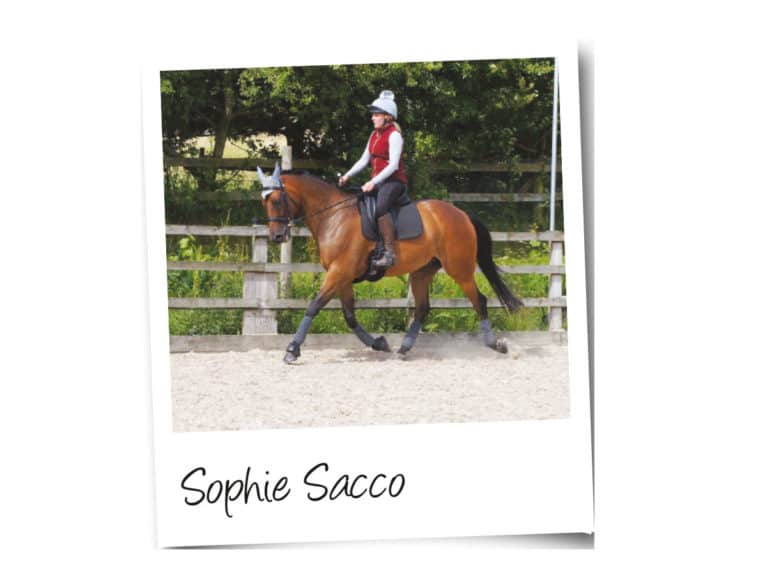
I belong to my local Riding Club and there are regular, local clinics with good trainers at nice facilities.
Just over a year ago, I launched a business making custom hat silks with big, fluffy pom-poms and most of my waking hours since have been spent attached to my sewing machine!
Going to a local venue with my horse to have a kind, supportive and knowledgeable coach set up a grid or a little course, then shout positive words of encouragement, is a wonderful relief from my normal routine.
I work from home running my business, and I have my horse at home and hack on my own. So if I go to a private lesson on my own at a private yard, it’s another thing I do by myself. I find going to group Riding Club training sessions social, supportive and a way to connect with other horsey people enjoying their horses. Riding Clubs help you tap into your local network of good coaches.
Advice: Riding Clubs are full of really nice, down-to-earth people and the training sessions don’t have to be madly competitive. Good coaches can tailor sessions for all abilities.
Case study two
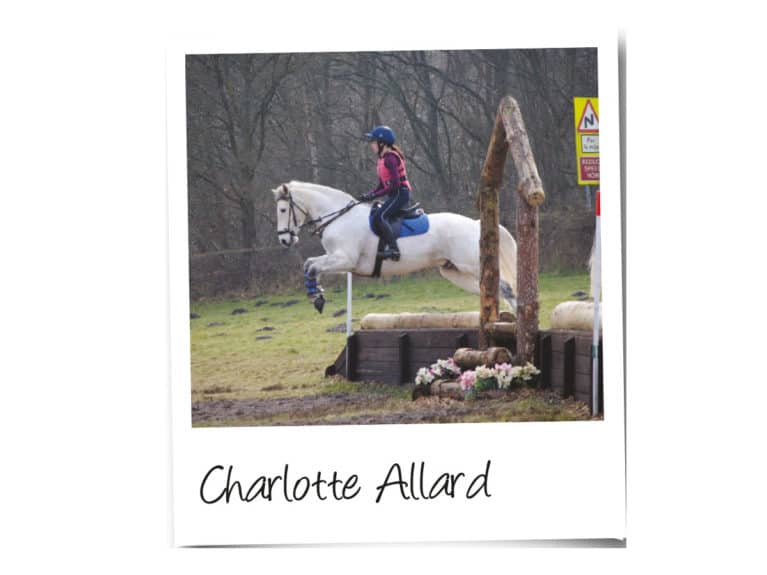
I live on the Isle of Wight and we don’t have access to a lot of training facilities or cross-country schooling venues, so I’ve started taking day-trips off the island for lessons with my horse, Barney.
It was a bit of a leap of faith the first time I did it because I was booking in with a coach I didn’t know at a facility I had never been to, but I’m so glad we did it.
For these sessions, I’ve chosen a professional coach who has access to a great cross-country course with a schooling field. It takes some forward planning to book the truck and trailer onto the ferry, and it’s pretty much an all day-affair, but I’ve found the quality of the training and amazing facilities worth the extra effort.
I’m naturally quite a laid-back person, so I seem to work best with coaches who have the experience and knowledge to judge when it’s safe to push and wake me up a bit. With encouragement, support and good advice from a professional coach, I’m really proud of what Barney and I achieved on our training day-trips, and I’ve already started planning ahead for more this summer.
Case study three
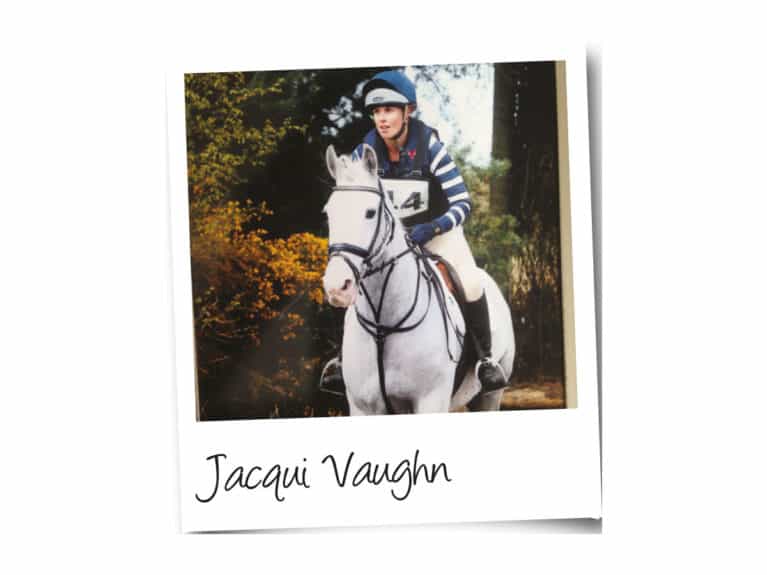
It took me a few years and a bit of trial and error, but I found a coach who has become my ‘trusted person’ in all aspects of my horsey life. She’s had success at a level that inspires me, is an outstanding horsewoman, and is loyal, hardworking and trustworthy.
Before I moved my horse to her yard and started taking lessons, I shared my goal of going eventing. She checked to make sure I was prepared to put in the work, then produced a progressive plan to help me achieve my goal. She built up our training step-by-step, pushing me out of my comfort zone enough that I progressed, but never so far that I lost my confidence or felt over-faced.
During our lessons, my trust in my coach allowed me to become a more positive rider. Instead of thinking to myself, ‘it’s too big’ or ‘I’ve never jumped something like that before’, I knew if she was asking me to jump it, it was because I had developed the skill and ability to do it well.
This structured approach continued to my first event. She took care of all the details, including entries, driving and grooming, so I could concentrate on riding my horse. The second event, she let me drive. With each successive event I had incrementally more responsibility until I was (just about!) self-sufficient. And because she had invested so much time into our programme, she celebrated our successes just as much as I did.
If my coach tells me I can do something, I believe her because she has proven that her judgment is sound and based on a sensible, measurable training programme.
I think that when you’re committed to pursuing a goal, you can have a lot of fun and success if you work with a coach who can take on the role of trusted person in your horsey life.
Case study four
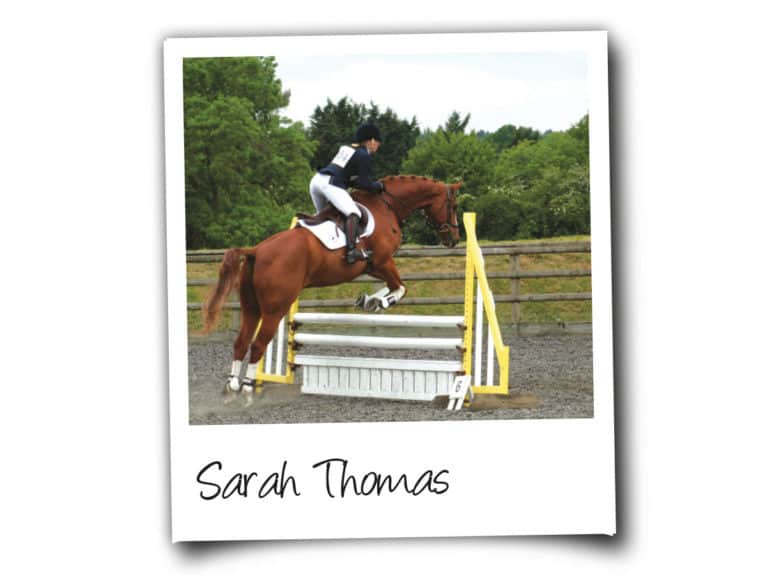
I’ve had my horse, 14-year-old Davidoff, for nearly 10 years and compete in a mix of showjumping, eventing and British Riding Club activities. I enjoy working with a mix of instructors to keep us both learning and progressing.
I have a core team of instructors who have known me for as long as I’ve owned Davidoff – their sympathetic coaching has carried me through our first competitive successes, as well as the occasional rider confidence crisis.
I’ve found a mix of sessions with my regular instructors, and attending clinics and training events with coaches I haven’t worked with before, really motivating and inspiring – sometimes a different exercise or approach can lead to a breakthrough. And as these coaches don’t know me, they get straight to work with what’s in front of them, no molly coddling!
Working with new trainers at different facilities boosts my confidence, and also seems to help keep Davidoff interested and guessing what’s going to happen next, which could become a daily challenge in the arena at home after 10 years!
Case study five
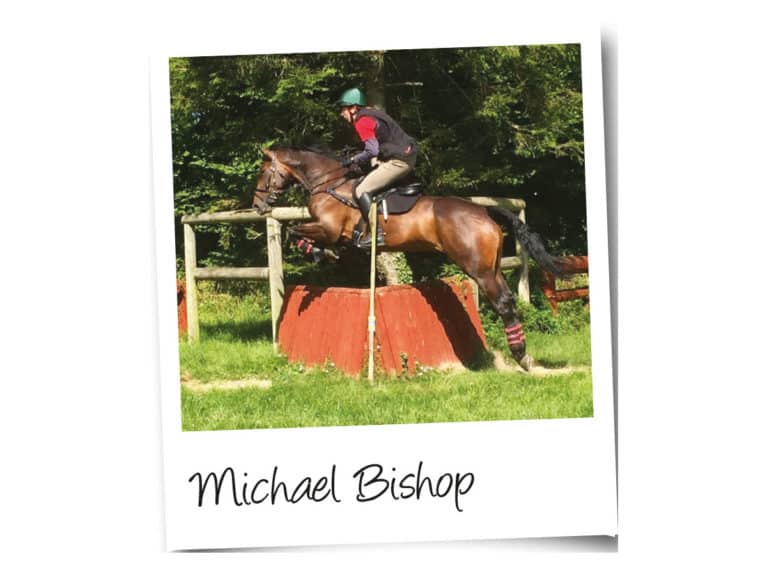
I’m a competitive person and ambitious with the plans and goals I set with my horses. But like most people, the horses need to fit in around a demanding job and a realistic budget.
I met my coach when I went to try a horse he had for sale – we clicked and our coaching relationship has evolved over time. He’s engaged and committed to a long-term strategy to help me achieve my aims.
Having a progressive plan that leads towards my goals is an essential part of my life with horses. Knowing that I’m progressing helps me stay motivated – especially when I’m tacking up to ride at 9pm after a long day at work or getting up in the dark to ride early in the morning.
I think really good coaches are able to tailor their teaching and communication style to the individual rider they’re working with. For example, I ride much more naturally and instinctively when I’m distracted, so a lot of the long-term goal setting and planning discussions happen when I’m in the saddle having a lesson. It wouldn’t work for everyone, but it works for us! I might be warming up while we’re talking through the progressive steps towards our first cross-country schooling session. Or I may be working through an exercise while we’re talking about an outing or competition I went to the previous week.
It’s a priority for me to be able to communicate easily with my coach – I know I can text him between training sessions if I have a question about part of the plan – for example, what venue would have courses most suited to my horse’s first outing or what event would be a good one to step up a level.

